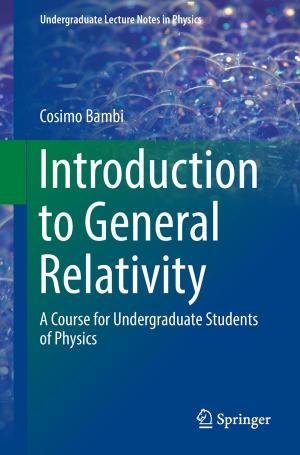Performing Political Theory
Pedagogy in Modern Political Theory
Nonfiction, Religion & Spirituality, Philosophy, Political, Social & Cultural Studies, Political Science, Politics, History & Theory| Author: | John Uhr | ISBN: | 9789811079986 |
| Publisher: | Springer Singapore | Publication: | January 30, 2018 |
| Imprint: | Palgrave Pivot | Language: | English |
| Author: | John Uhr |
| ISBN: | 9789811079986 |
| Publisher: | Springer Singapore |
| Publication: | January 30, 2018 |
| Imprint: | Palgrave Pivot |
| Language: | English |
This book examines the performative role of influential thinkers in the history of modern Western political thought. The case studies examine influential political philosophers who saw their writing role ‘performatively’, as an exercise in pedagogy designed to generate a new type of political following among their readers. Machiavelli, Mill and Nietzsche wrote classic works in political theory (The Prince, On Liberty, Genealogy of Morals) to reform and reshape their readers’ ability to think and act politically. Thinkers become performative through what they write in their public performance; and contemporary academic teachers can use this to great pedagogical effect in helping students ‘get the point’ of political theorising. This book examines how a small sample of classic theoretical performers wrote their remarkable public works.
John Uhr draws on neglected or forgotten lessons on performative writing from past masters of literary criticism like Lord Shaftesbury, R G Collingwood and John Dewey, all of whom can help those now teaching the history of modern political thought to enable students to learn the performance of politics acted out by modernising thinkers capable of writing in ways similar to Machiavelli, Mill and Nietzsche.
This book examines the performative role of influential thinkers in the history of modern Western political thought. The case studies examine influential political philosophers who saw their writing role ‘performatively’, as an exercise in pedagogy designed to generate a new type of political following among their readers. Machiavelli, Mill and Nietzsche wrote classic works in political theory (The Prince, On Liberty, Genealogy of Morals) to reform and reshape their readers’ ability to think and act politically. Thinkers become performative through what they write in their public performance; and contemporary academic teachers can use this to great pedagogical effect in helping students ‘get the point’ of political theorising. This book examines how a small sample of classic theoretical performers wrote their remarkable public works.
John Uhr draws on neglected or forgotten lessons on performative writing from past masters of literary criticism like Lord Shaftesbury, R G Collingwood and John Dewey, all of whom can help those now teaching the history of modern political thought to enable students to learn the performance of politics acted out by modernising thinkers capable of writing in ways similar to Machiavelli, Mill and Nietzsche.















